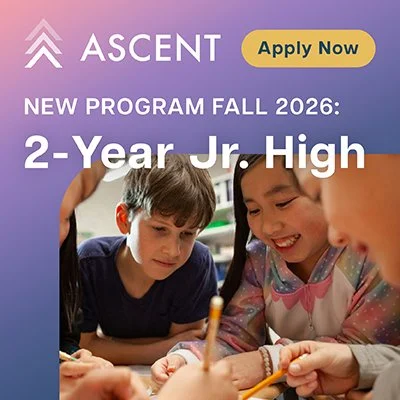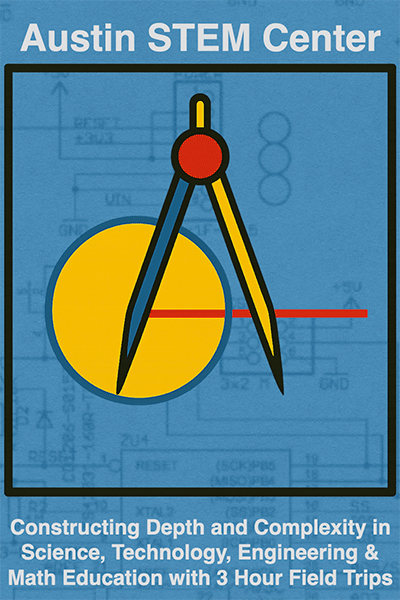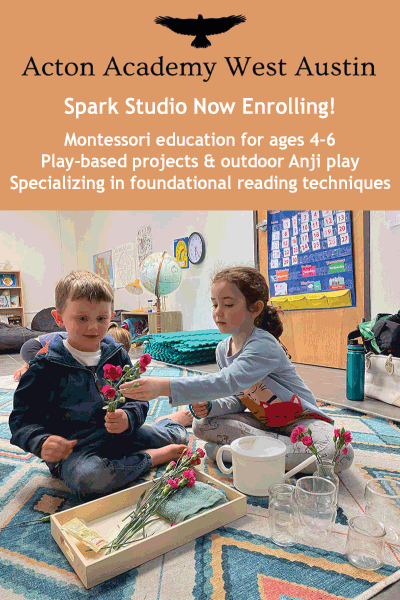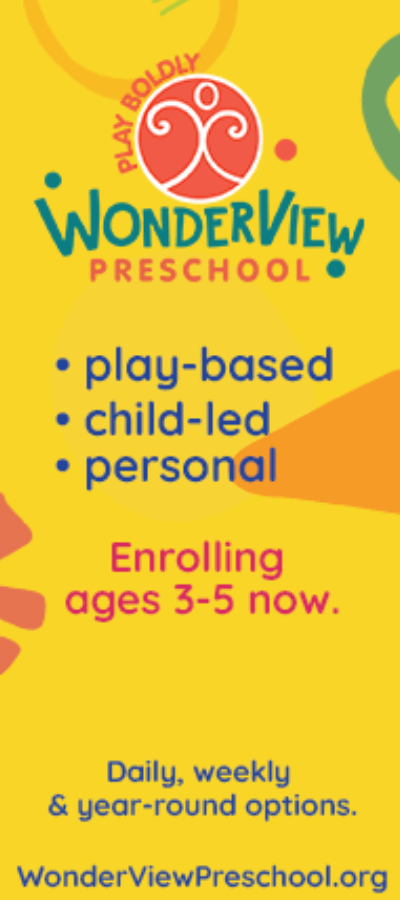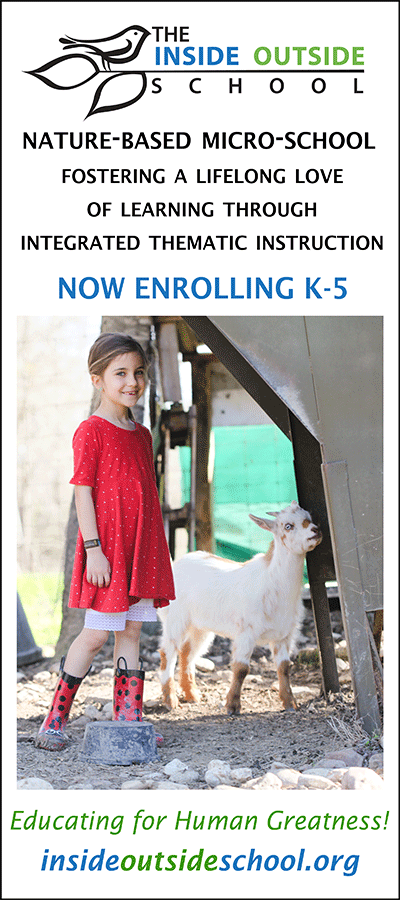The public versus private dilemma
/
Pamela Nicholas, founder of PEBBLES, a project based learning center, is passionate about keeping kids motivated and engaged in learning. She has been teaching for 15 years and has experience working with gifted students; those with dyslexia, dysgraphia, and dyscalculia; children on the autism spectrum; students who suffer from anxiety; and English language learners. Pam joins us on the blog to share her experiences as both an educator and a parent who has navigated the ups and downs of public and private education—and ultimately decided to start her own school.
I don’t know if you are a somewhat neurotic parent like I am, but the moment I held my precious bundle of joy in the delivery room, I had two—well, no, to be honest, three—thoughts. The first one was “Wow, I can’t believe this little guy is here and mine. I’m in love!” The next, “I hope I don’t mess this up!” And finally, “Can I pass out now?”
As our family has progressed through the years, it has always been thought number two, “I hope I don’t mess this up!” that has played over and over in my mind whenever I’ve been making choices about his education. I was a public school teacher before he was born, tutored privately for a while, and then rejoined the teaching world full-time again once he was ready to go to school. Both of us started back in public school, but I wasn’t satisfied. I knew that my son was systematically being taught the things that needed to be taught in kinder through second grade. I knew there was a clear path, and I certainly knew there was administrative oversight with teachers having multiple observations throughout the school year. What I didn’t like was that some of his teachers were not able to meet his needs.
He was ahead of many of the other students, but his teachers weren’t able to assess him at higher levels because he had already hit their ceiling for his grade level. I was supplementing his homework with work that was more on his level, but he was starting to get bored in school. They offered to have him skip a grade, but we didn’t feel it would be good for him to be the tiniest and youngest in his classes. His father and I had both had that experience, and it was not fun for either of us on a social level. We knew that the next year would bring standardized testing, and, to be honest, we were dreading the months of test prep that were in store for him. We made the decision to pull him from public and embarked on the path to private school.
In private schools, just as in public ones, there are good teachers and not so good. However, it boggles my mind that in some private schools, those who are in charge rarely, if ever, walk into a classroom to see what is going on in their own schools. I have walked through the halls and seen scenarios where a teacher was simply on Facebook while the kids were doing nothing, and where teachers hadn’t bothered to show up for the majority of their class period. Additionally, some of the private schools do not require teachers to be credentialed. This can become a problem for students when they end up with teachers who do not have any idea how to assess students and then meet their individual needs. Teachers who have not gone through a credentialing process also don’t necessarily know how to manage a classroom effectively, or develop age-appropriate lessons that keep students motivated and engaged.
On the positive side of private schools, the class sizes are often smaller, making it possible for teachers to give more attention and individualized instruction to each student. Private schools tend not to have as many bullying issues. Another plus is their lack of emphasis on standardized testing.
Socially, private schools can sometimes be difficult because children have a smaller pool of friends to choose from. Students who have been together for years in a private setting tend to act more like sisters and brothers (though at times it can be like dysfunctional siblings), but at least they know each other well enough to put up with one another’s quirks.
The main results of my son having spent time in a private school are that he made some pretty good friends, had some great teachers who helped him excel in some areas, but also had some inexperienced and untrained teachers, resulting in some major learning gaps.
So what to do? I’ve decided to pull him out, for now, and take matters into my own hands. I am starting my own school and living my dream of getting it right for kids and their families. My vision is a school where the subjects are integrated together, where kids can build from their prior knowledge, and not start in a place too low or too high. I can assess them and provide them with curriculum and activities built for them at their appropriate levels. And I can do it all in a way where I have seen my own students achieve the most success: through project-based learning.
During my years of teaching, I’ve seen students do their best when they receive one-on-one instruction, are excited about their topics (because they are given some freedom to choose), and are encouraged to choose a project that can encapsulate everything that they’ve learned. We all learn best by doing, so why not give kids the opportunity to actually put what they have learned into practice? I LOVE the idea of a happy medium where students learn accountability, learn that they still have to put in the effort to achieve specific academic goals, but get to have some choice and fun too. My vision is to simply do what works in a stress-free way where the kids can feel great about what they have achieved.
Every child is different, and every family has different situations and priorities. After being in both worlds, my advice would be to really know your child and what his or her needs are, and then prioritize them. Obviously, your financial situation can play a big role in the decision-making process as well.
If you’re considering a private school, I would recommend that you ask the following questions to school administrators:
- May I come in and observe?
- What types of assessments do you do when placing a child?
- May I see examples of these assessments (do they include spelling, reading, writing, and leveled math)?
- Are your teachers certified?
- How often do you personally go in and observe each of your teachers?
- What are the exact homework policies of the school? Can I see examples of the type of homework assignments I can expect my child to have?
- Would it be okay to contact the parents of some current students?
- How will my child’s progress be monitored, and how will my child’s progress be communicated to me?
- What systems are in place to remediate an academic need if my child falls behind?
- What systems are in place to meet my child’s needs if he or she is academically ahead?
- If your child has some special needs, definitely ask what support systems are in place to address them. Support systems include specific teacher training and classroom experience, Individualized Education Programs, or IEPs (including teacher accountability for upholding what is in an IEP), and physical environments to help support your child.
Making decisions like these can be extremely difficult, and there can be a lot of trial and error in figuring out what seems to best fit your child and your family. After having been through it (and continuing to go through it), my advice would be to keep looking, and keep asking questions about services. You will really want to hear the details about how these services are implemented, as well as what support and accountability is in place for those services.
Remember, there are always pros and cons to every educational situation. Prioritize your child’s needs, realizing that they may change over time. Most importantly, stay watchful! I’ve come to realize as a parent that yes, I am going to mess up, but as with all mistakes, I will learn from them and keep trying to do what is best. Good luck, and happy school hunting!
Pamela Nicholas





